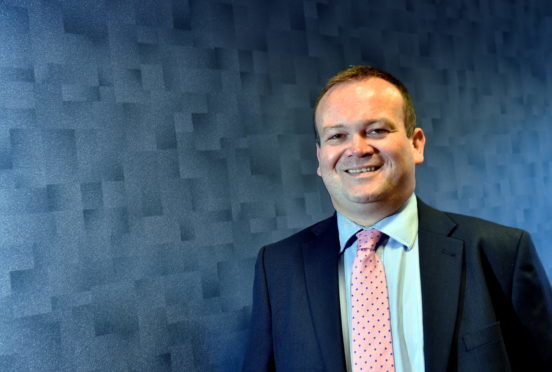Pupils returning to Aberdeenshire schools in August may have single-subject, all-day lessons as part of plans to ensure social distancing and limit the spread of Covid-19.
Laurence Findlay, the director of education and children’s services for Aberdeenshire Council, has revealed some of the options currently being considered for the region’s 171 schools.
Following Scottish Government guidance issued last month, education staff in Aberdeenshire have been working hard on plans to bring some semblance of normal learning back into the lives of pupils of all ages.
With requirements to reduce class sizes, the Scottish Government expects pupils to be spending around half of their time in physical classrooms with peers, and the other half of their time learning at home.
Mr Findlay said that because Aberdeenshire Council’s schools vary so greatly, with some remote rural schools serving fewer than a dozen pupils and larger communities hosting hundreds, the council does not “micromanage” head teachers, who have been drawing up proposals to suit their individual school’s needs.
Mr Findlay said: “I describe it as like a big jigsaw we’re trying to put together, but nobody really knows what the final picture will be on that jigsaw.
“That is because every school is unique. In Aberdeenshire we have some with 10 pupils, and some with 1,500 pupils. There won’t be a one-size-fits-all approach.
“Within the guidance that has been put out, they’ll come up with their own version of a blended approach to learning.
“Some of that will be school-based, and some of that will be home-based.
“The home-based learning could be a mixture of video conferencing delivered by teachers and research-based work where teachers set work and children carry it out independently to try and encourage independent learning by young people.
“We have to try to minimise movement between classrooms and in corridors, so lots of things are being considered, such as one-way systems, staggered starts, staggered break times, staggered finishing times, different rotas and so on.
“Within that, head teachers have the flexibility to come up with the best model that best suits their school.
“So they may consider organising learning into half-day blocks, or whole-day blocks, or they may stick with periods.
“Nothing has been decided yet.
“This is the kind of dialogue that’s going on in schools right now between head teachers and staff, and they’ll share that with parents once the plans are drawn up.”
It is hoped that finalised plans will start to be confirmed by head teachers this week for some schools.
Last week, the Scottish Government’s education secretary John Swinney said there would have to be a very “clear rationale” required for any councils that miss the target of spending as close as possible to half of their time in school.
Mr Swinney also accepted he could not say with “absolute certainty” that the 2021 Scottish Qualifications Authority exams will go ahead.
Mr Findlay said that although there were some problems at the start of lockdown, he has been impressed by how pupils, staff and families have handled the dramatic shift in how education is delivered.
He said: “People were doing normal schooling on March 20 and over the weekend they had to completely flip their way of working.
“There were a couple of really difficult weeks, but people rose to the challenge.
“We’ve had more than 1,000 of our teachers doing additional training on how to teach with digital technology and teaching remotely, and we hope to really see that ramped-up in the new term.”
Mr Findlay said he is “relatively confident” the new approaches to learning for a post-Covid-19 world currently being considered by the region’s schools will be a success in Aberdeenshire.
He added: “I’m confident young people will get a different experience, but a good experience, come the new year in August.
“I’d like to give a huge thank-you to the staff in Aberdeenshire and also the parents for all their support, understanding and patience, because this has been really difficult for families.
“And of course thanks must be given to the young people themselves.
“Being a young person or a teenager is hard enough, and you’ve got so many challenges, but then to be separated from your friends and your routine at school is really hard.
“They really do deserve a ‘well done’.”
